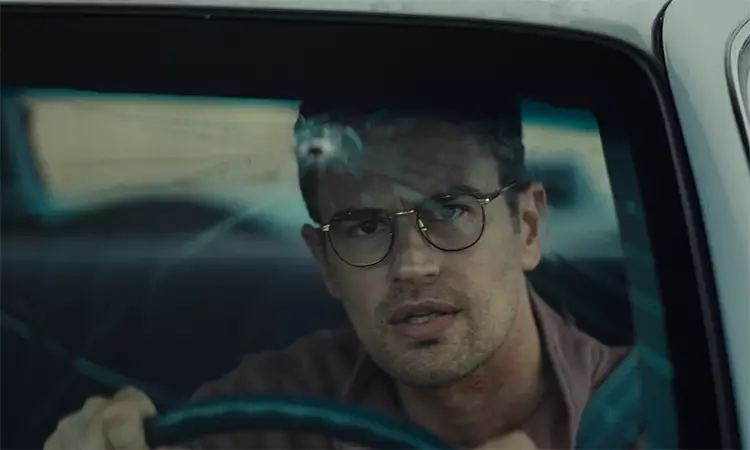“The Monkey,” directed by Osgood Perkins, presents an intricately woven tapestry of dark humor and genuine horror through its adaptation of Stephen King’s 1980 short story. This film doesn’t merely employ horror tropes; it orchestrates a sophisticated exploration of themes such as the fragility of childhood, the burdens of fatherhood, and the omnipresence of mortality. Set in a timeline that echoes pivotal moments in recent history, the film invites viewers to navigate complex emotional landscapes while maintaining an undercurrent of macabre wit.
Contrary to the original 1980s narrative, “The Monkey” transposes its setting to a more contemporary era beginning in 1999 and stretching into 2016 and beyond. This temporal repositioning grounds the story in a significant cultural context. The year 2016 is particularly evocative, representing not just the rise of Donald Trump’s presidency but also marking a time when the shadows of childhood traumas can re-emerge. This adaptability displays Perkins’ ability to resonate with contemporary audiences while simultaneously paying homage to King, whose insights into human fears remain timeless.
At the story’s core lies the relationship between two brothers, Hal and Bill, portrayed with compelling depth by Theo James. Hal is characterized as sensitive and introspective, a stark contrast to the aggressive persona of his twin, Bill. This duality highlights a familiar narrative of sibling rivalry and the quest for identity against the backdrop of shared trauma. The organ grinder monkey becomes a sinister symbol in their lives, representing the incessant cycle of fear and violence that haunts them. Their individual responses to this trauma form a multifaceted character study exploring the duality of human nature—how one can oscillate between vulnerability and aggression depending on the circumstances.
Perkins expertly crafts a tone that oscillates between laugh-out-loud moments and spine-chilling horror. The film employs humor as a coping mechanism, allowing viewers to engage with the darker themes without descending into despair. The manner in which it constructs “Final Destination”-like scenarios invites both shock and laughter, ultimately serving to underscore the unpredictability of life and death. This blend creates an unsettling but familiar atmosphere that is quintessentially King, as it both entertains and provokes introspection.
As the narrative unfolds, it becomes clear that the film is not just a horror story but a poignant commentary on the generational transference of trauma and lessons learned from parenting. Hal’s ascendance into fatherhood is shadowed by his irrational fears for his son, Petey, which are rooted in the unresolved traumas of his childhood. Similarly, Bill’s attraction to the monkey symbolizes a perverse homage to their father’s abandonment, manifesting as an unhealthy obsession. Both brothers confront the suggestion that they may be destined to repeat the horrors of their past, a theme that resonates deeply in contemporary conversations about inherited trauma and familial legacies.
“The Monkey” is a film that traverses the complex interplay between humor and horror, successfully evoking a sense of nostalgia while prompting critical thought about the future. By examining the narrative through the lens of its characters’ struggles, Perkins invites an introspective look at how the trauma of youth can ripple through adulthood. Coupled with stunning visuals and a distinct aesthetic that gives a nod to the 1960s, the film serves not only as entertainment but as a deeply resonant exploration of what it means to confront one’s past. In a world increasingly fraught with uncertainty and chaos, “The Monkey” stands as a testament to the intricate dance between legacy, loss, and the comedic absurdity of existence itself.

